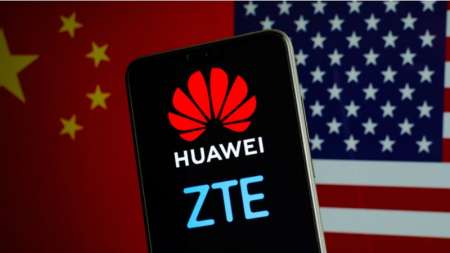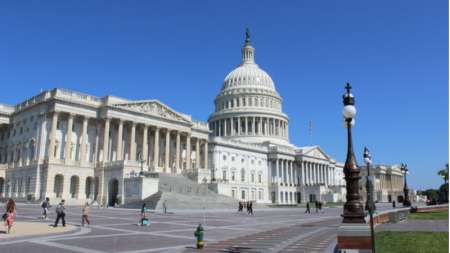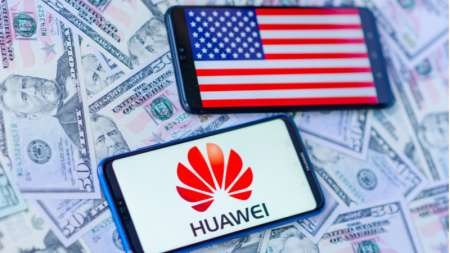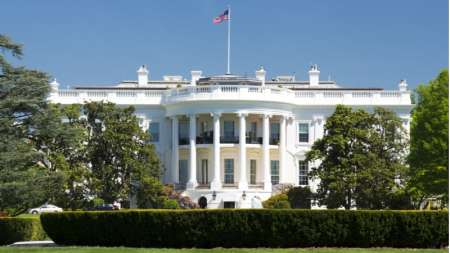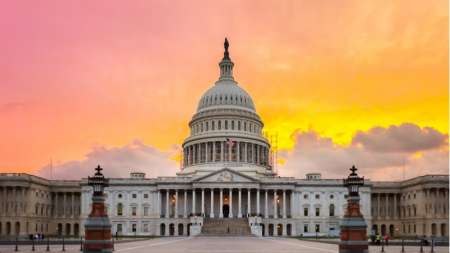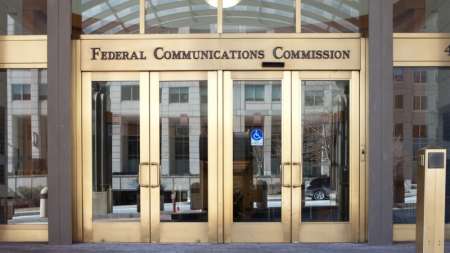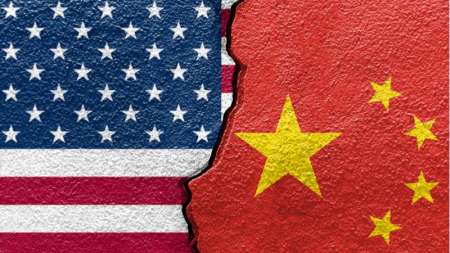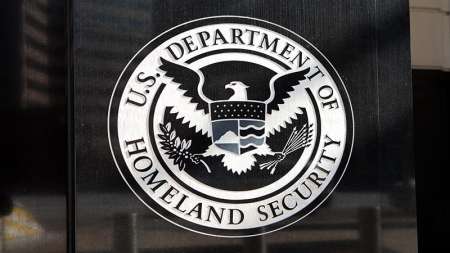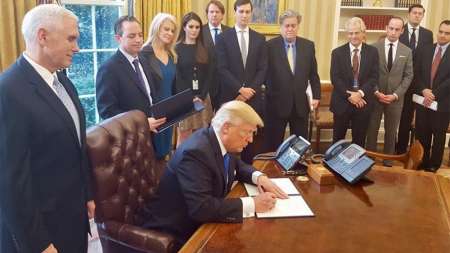The Secure Equipment Act has now cleared both the House and Senate, and is expected to land on President Biden’s desk for his signature shortly. […]
The Federal Communications Commission (FCC) announced it will open the application filing window for the Secure and Trusted Communications Networks Reimbursement Program on Oct. 29 and close it on Jan. 14, 2022. […]
The Federal Communications Commission (FCC) updated its list of communications equipment and services suppliers that it says pose an “unacceptable risk” to national security or the security and safety of United States citizens. […]
After months with no movement and a weekend full of deal-making, Congress is expected to pass a $900 billion COVID-19 relief package as part of a broader Fiscal Year 2021 (FY21) omnibus spending bill. The relief includes a new round of Payment Protection Program (PPP) funding, money for broadband deployment and emergency use, and money to remove banned Huawei and ZTE equipment. […]
The Federal Communications Commission (FCC) has officially adopted rules for identifying, removing, and replacing telecommunications equipment that could pose a national security threat to the United States. […]
Starting August 13, a new Federal Acquisition Regulation (FAR) Council rule will ban Federal agencies from buying products or utilizing services from China-based tech companies such as Huawei and ZTE. A July 23 memo from the Department of Defense (DoD) outlines contracting responsibilities as agencies adjust to the transition. […]
Congress is looking to hammer out its next COVID-19 relief bill in the coming weeks and it looks like it will be a contentious negotiation. As part of its opening salvo, Senate GOP leadership released their policy proposal on July 27. […]
A rule change prohibiting Federal use of telecommunications services and equipment from companies that pose national security risks – such as China-based Huawei and ZTE – will cost $11 billion to implement and $2 billion each subsequent year, according to a July 14 Federal Register announcement from the Department of Defense (DoD), General Services Administration (GSA), and NASA. […]
President Donald Trump signed the Secure and Trusted Communications Networks Act of 2019, solidifying $1 billion in funding for smaller telecommunications providers to rip out and replace equipment from Chinese firms, such as Huawei and ZTE. […]
On Feb. 27, the Senate passed the Secure and Trusted Communications Networks Act of 2019 sending the bill to President Trump’s desk. […]
A Senate bill that would provide government funding for smaller communications service providers to remove equipment in their networks supplied by Huawei, ZTE and other China-based suppliers would cost $726 billion over ten years to implement, the Congressional Budget Office said on Feb. 11. […]
The United States government must take immediate action to advance its interests in 5G wireless development or else risk falling behind Chinese tech companies like Huawei and ZTE for generations to come, Attorney General William Barr and Federal Bureau of Investigations (FBI) Director Christopher Wray said Feb. 6. […]
United Kingdom authorities said today they will allow communications service providers to use in their networks a limited amount of equipment made by “high risk vendors,” and impose restrictions on more extensive use of equipment from those firms. […]
For the second time in recent weeks, Congress is looking to spend $1 billion or more to help make the Huawei problem go away. […]
The House voted Dec. 16 to approve legislation that would provide $1 billion to smaller-sized private sector communications service providers to remove from their networks equipment purchased from China-based equipment makers Huawei and ZTE, and replace that gear with equipment that does not pose a threat to U.S. national security. […]
The Federal Communications Commission voted today to bar the use of Universal Service Fund (USF) money to pay for equipment and services supplied by China-based communications equipment makers Huawei and ZTE, and more broadly any other firms that “pose a national security threat” to the U.S. […]
The Federal Acquisition Regulation will ban agencies from procuring equipment from five Chinese companies, including Huawei and ZTE, starting August 13, according to an interim rule published August 7. […]
A group of five senators released bipartisan legislation that would create a national policy to securely deploy commercial 5G networks and establish an up to $700 million grant program to aid American communications providers in removing Chinese products from their networks. […]
President Donald Trump declared a “national emergency” when he signed an executive order (EO) on May 15 that would grant Federal authority to prohibit the adoption of foreign adversaries’ telecom suppliers. Though the order was signed only a day ago, both legislators and trade groups have already weighed in and the EO has received mostly positive reviews. […]
John Legere, CEO at T-Mobile U.S., told members of the House Energy and Commerce Committee’s Communications and Technology Subcommittee at a hearing on Tuesday that the carrier does not use equipment provided by China-based Huawei or ZTE in its network, and pledged to “never” use gear from the two Chinese firm in T-Mobile’s 5G network. […]
Senators and witnesses alike took turns criticizing Chinese tech and trade policy, and China-based network equipment maker Huawei, at a hearing on Thursday over the firm’s alleged potential to create security harms if its equipment was included in U.S. 5G wireless networks. […]
The Atlantic Council recommends accelerating a whole-of-government approach to developing a long-term national spectrum strategy which will include creating an inter-spectrum for 5G that will allow for Federal, state, and local policy synchronization of policies and procedures to rapidly and cost-effectively implement 5G. […]
Members of the House and Senate announced introduction of the Telecommunications Denial Order Enforcement Act today, which would require the Trump administration to issue export denial orders for Chinese telecommunications companies caught breaking export control laws and sanctions. […]
Sens. Mark Warner, D.-Va., and Marco Rubio, R-Fla., introduced legislation on Friday to create an Office of Critical Technologies & Security at the White House to coordinate action across Federal agencies and develop a “whole of government” strategy to combat theft of U.S. technologies by state actors including China, and to reduce risks to “critical supply chains.” […]
Sens. Marco Rubio, R-Fla., and Tammy Baldwin, D-Wis., this week introduced legislation that would take several steps to curb the ability of Chinese companies to impact the U.S. technology supply chain and profit from alleged theft of U.S. intellectual property. […]
The Department of Homeland Security today released a request for information (RFI) calling on the private sector to provide DHS with information on strategies and tools to augment its cyber supply chain risk management program. […]
President Trump today signed into law the FY 2019 National Defense Authorization Act (NDAA), which clocks in at $717 billion in spending for the Pentagon. After months of negotiations, hearings, and compromises, the must-pass defense spending bill was signed during a visit by President Trump to Fort Drum in upstate New York this afternoon. […]
By a vote of 87-10, the Senate today approved the FY2019 National Defense Authorization Act (NDAA) and the corresponding conference report that ironed out differences between House and Senate versions of the bill. The legislation to fund the Defense Department (DoD) and U.S. armed forces now moves to President Trump’s desk for his signature. […]
The House on Thursday voted 359-54 to approve the National Defense Authorization Act (NDAA) for FY 2019 (HR 5515) and an accompanying conference report produced earlier this month that irons out differences between House and Senate versions of the bill. […]
The National Defense Authorization Act (NDAA) for FY 2019 took a big step toward passage with the release of the conference report late yesterday that unifies House and Senate NDAA legislation and places in sharp focus concerns about growing cyber and electronic warfare threats and ways that the United States should address them. […]


